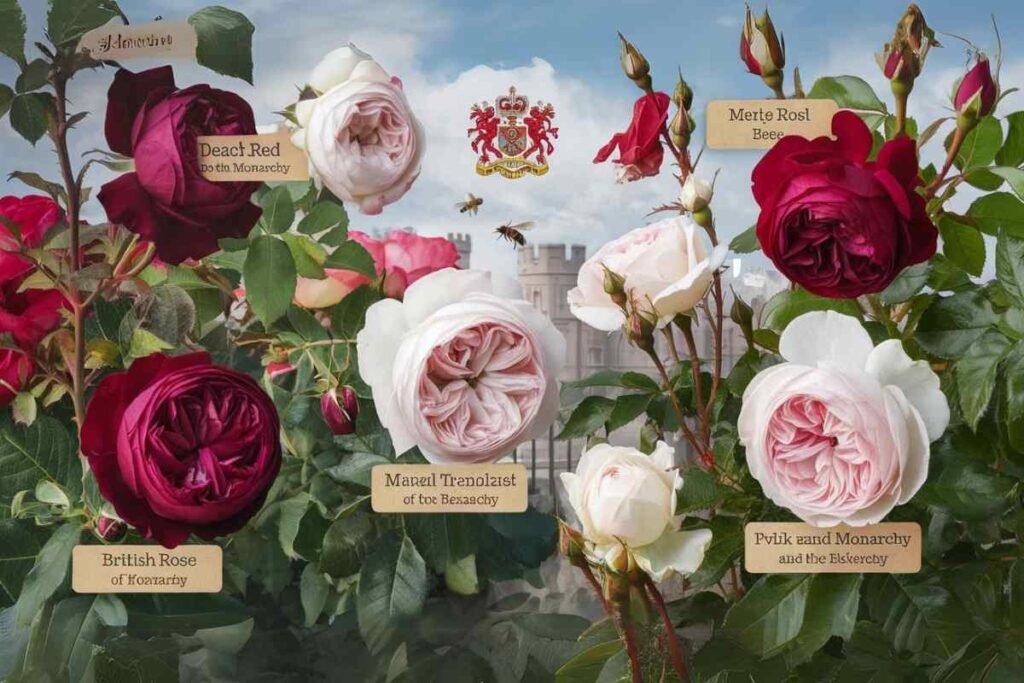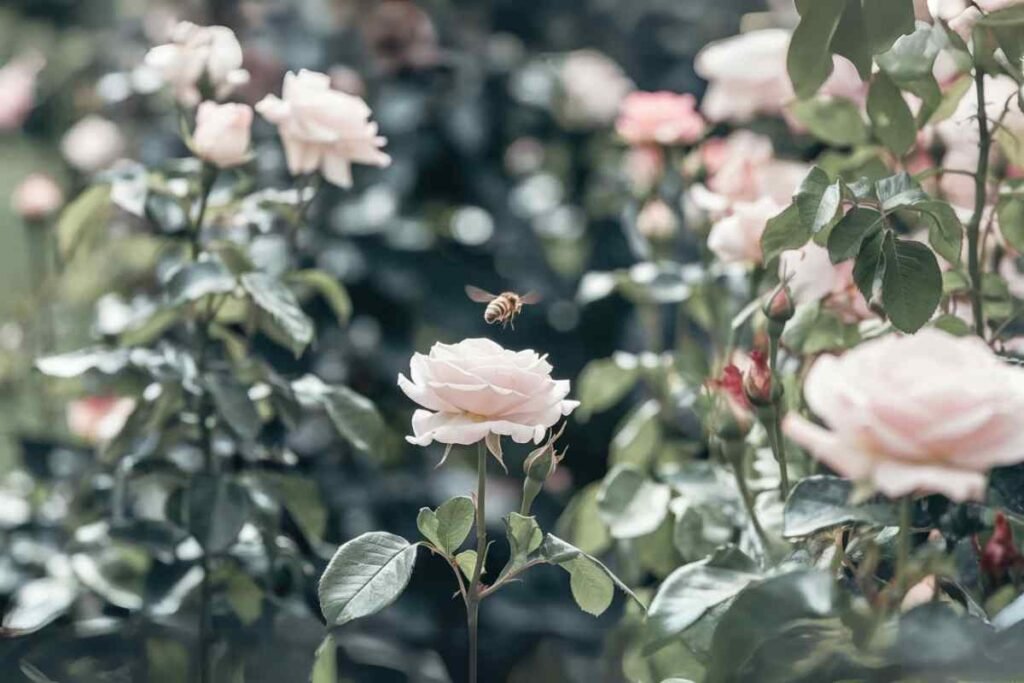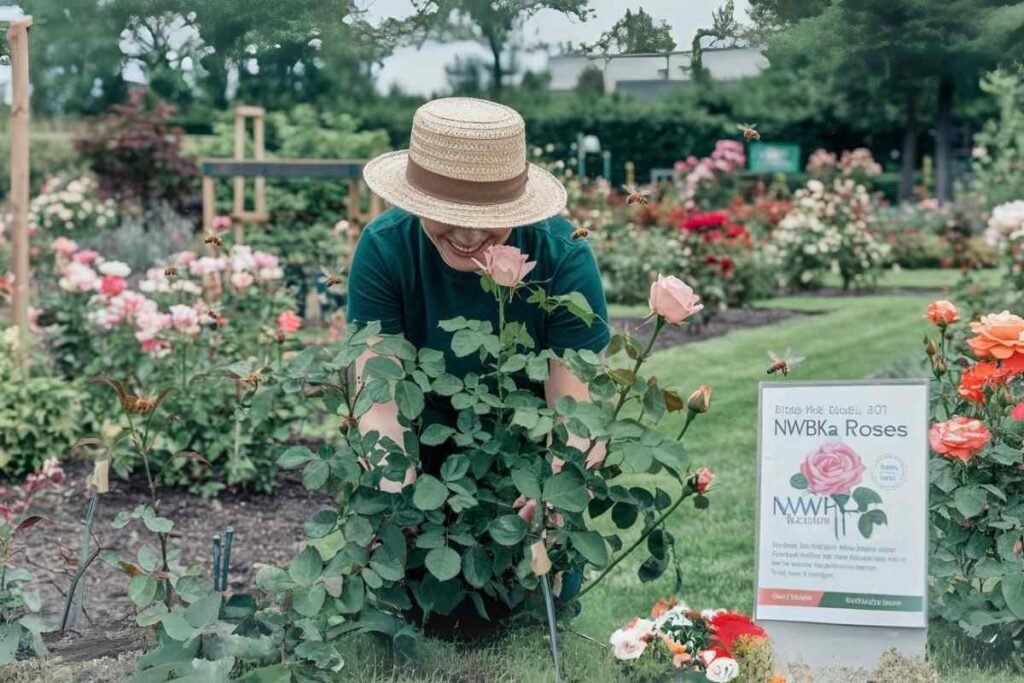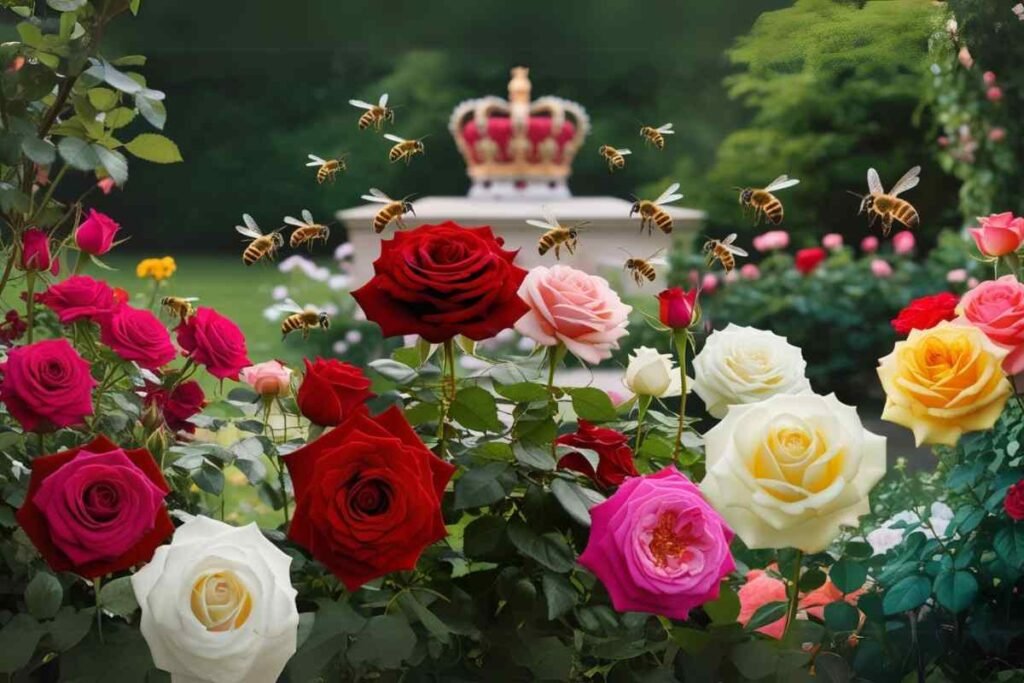The King’s Roses NWBKA is not just another rose garden—it’s an initiative that connects the rich heritage of the British monarchy with environmental stewardship and sustainable beekeeping practices.
Led by the North West Beekeepers Association (NWBKA), this fascinating project unites royal history, horticulture, and nature conservation in a way that benefits both the environment and our cultural heritage.
This article explores the fascinating intersection of royal history and nature, highlighting how The King’s Roses NWBKA initiative brings these two worlds together.
From the War of the Roses to bee-friendly gardens, we’ll dive into the legacy of royal roses and how they are cultivated today.Learn more about our dedication to historical preservation on our homepage.
What Are The King’s Roses NWBKA?

The King’s Roses NWBKA represents a curated collection of roses that aren’t just beautiful—they are living, breathing links to British royal history.
These roses have been carefully selected for their ties to monarchs and historical events, such as the War of the Roses, and have been preserved by the NWBKA to honor their royal lineage.
Each rose variety carries a story. Whether it’s the symbol of the House of Lancaster or the House of York, these roses have deep historical roots, making them much more than mere flowers. They are living monuments to an era long past.
Royal History Behind The King’s Roses
The connection between roses and British royalty runs deep, with these flowers symbolizing power, legacy, and the monarchy’s enduring influence. Throughout history, roses have adorned royal gardens and have been integral to the visual identity of various monarchs.
These royal roses serve as a testament to the country’s rich heritage, representing not just beauty but also the enduring spirit of British royalty.
The War of the Roses Connection
To truly understand the significance of The King’s Roses, we need to look back at one of the most important chapters in English history—the War of the Roses. This conflict, fought between the House of Lancaster and the House of York, saw these two families battle for the throne of England in the 15th century.
Each house adopted a rose as its symbol—red for Lancaster and white for York. These roses were not merely ornamental; they were powerful symbols of loyalty, identity, and politics. The King’s Roses NWBKA proudly cultivates these varieties, keeping alive the memory of these turbulent times.
Royal Gardens Through the Ages
Roses have always been an integral part of royal gardens. Monarchs throughout history have used them to decorate palaces and estates, symbolizing wealth, power, and elegance.
The King’s Roses NWBKA continues this tradition, ensuring that these royal varieties are not lost to time but instead passed down to future generations.
The Role of NWBKA in Preserving The King’s Roses
The North West Beekeepers Association (NWBKA) is more than just an organization of beekeepers. It is the custodian of The King’s Roses, working to preserve these ancient varieties for future generations.
The NWBKA’s efforts go beyond cultivation—they are actively involved in education, conservation, and community engagement.
Preserving Historical Varieties
Many of the roses in The King’s Roses collection are centuries old. The NWBKA employs a blend of traditional gardening techniques and modern science to keep these roses healthy and thriving. By using sustainable methods, they ensure that these roses can be appreciated for generations to come.
Educational Programs and Public Engagement
The NWBKA doesn’t keep its knowledge to itself. It regularly hosts workshops, tours, and events, inviting the public to learn more about the roses, their history, and the essential role bees play in their survival. These educational initiatives help raise awareness about the importance of royal heritage, biodiversity, and pollination.
The Importance of Bees in the King’s Roses Project

Bees are essential to the survival of the roses in The King’s Roses NWBKA project. Roses need pollinators to reproduce, and bees are their best helpers. The relationship between bees and roses is symbiotic—bees provide pollination, while the flowers offer nectar for the bees.
Pollination Power
Bees are nature’s most efficient pollinators. As they move from flower to flower, they carry pollen, helping plants reproduce. This is particularly important for The King’s Roses collection, as many of these varieties are rare and need all the help they can get to remain viable.
Supporting Biodiversity
By creating a harmonious environment where roses and bees coexist, The King’s Roses NWBKA also supports other forms of wildlife. It helps maintain a healthy ecosystem, benefiting not just roses and bees, but many other plants and insects that rely on this delicate balance.
Challenges in Cultivating Royal Roses
Maintaining The King’s Roses isn’t without its challenges. The NWBKA faces several hurdles in ensuring these royal blooms remain in top condition.
Climate Change
Climate change has made growing roses more difficult. Rising temperatures, erratic weather, and changing seasons affect the growth cycles of roses. The NWBKA has to constantly adapt its methods to counteract the impact of climate change on the roses’ health.
Pests and Diseases
Roses, while hardy, are vulnerable to pests and diseases. The NWBKA uses eco-friendly pest control methods to protect the roses from these threats. This ensures that the roses remain healthy without harming the bees or other pollinators.
Modern Trends in Rose Cultivation
While The King’s Roses NWBKA is deeply rooted in history, the organization also embraces modern techniques to improve rose cultivation and support bee populations.
Sustainable Gardening Practices
Sustainability is at the heart of The King’s Roses project. The NWBKA employs eco-friendly practices such as composting, organic pest control, and water-efficient irrigation systems. These methods help protect the environment while ensuring that the roses continue to flourish.
Hybrid Varieties: Blending Old and New
In addition to preserving historical varieties, the NWBKA is experimenting with hybrid roses. These roses combine the beauty and historical significance of old varieties with the hardiness and disease resistance of modern breeds. This innovation ensures that The King’s Roses collection remains relevant and resilient in today’s world.
How You Can Support The King’s Roses NWBKA

You don’t have to be a historian or a beekeeper to support The King’s Roses NWBKA. There are several ways you can get involved and contribute to this noble cause.
Visit the Gardens
One of the best ways to support the project is by visiting the rose gardens. Many of the NWBKA’s gardens are open to the public, offering an opportunity to experience the beauty of these royal roses firsthand. You can also participate in tours and workshops to learn more about the roses and the work the NWBKA is doing.
Create a Bee-Friendly Garden
You can help support bee populations by creating a bee-friendly garden. Choose flowers like roses that attract bees, and avoid harmful pesticides. Even a small garden can make a big difference for local pollinators.
Spread the Word
Share your knowledge of The King’s Roses NWBKA with others. Post about it on social media, write a blog post, or simply talk to your friends and family. The more people know about this project, the more support it will receive.
Conclusion:
The King’s Roses NWBKA is more than a project; it’s a bridge between history, nature, and sustainability. By preserving royal rose varieties and supporting bee populations, the initiative honors Britain’s royal heritage while fostering a future where both history and nature thrive.
Through education, sustainable practices, and community involvement, the NWBKA is shaping a legacy of environmental stewardship that will last for generations.
Whether you’re a historian, gardener, or environmental advocate, The King’s Roses project offers something for everyone to enjoy and protect.
FAQS
What historical events are linked to The King’s Roses NWBKA?
The roses are tied to the War of the Roses and British royal history.
How does The King’s Roses NWBKA support local communities?
The King’s Roses NWBKA offers educational programs to engage and inform local communities.
Are hybrid roses part of The King’s Roses NWBKA collection?
Yes, hybrid roses are being developed to combine historical beauty and modern hardiness.
Why are bees crucial for The King’s Roses NWBKA project?
Bees ensure pollination, which is vital for the survival of The King’s Roses NWBKA collection.
Can The King’s Roses NWBKA help with bee conservation?
Yes, it promotes bee conservation by creating a bee-friendly environment alongside rose cultivation.
How does climate change affect The King’s Roses NWBKA?
Climate change challenges rose growth, requiring the NWBKA to adapt its methods for preservation.
What types of events does The King’s Roses NWBKA host?
The King’s Roses NWBKA hosts workshops, tours, and public events to educate visitors.
Can I buy roses from The King’s Roses NWBKA collection?
The roses are primarily for preservation and education, but some may be available for purchase.
